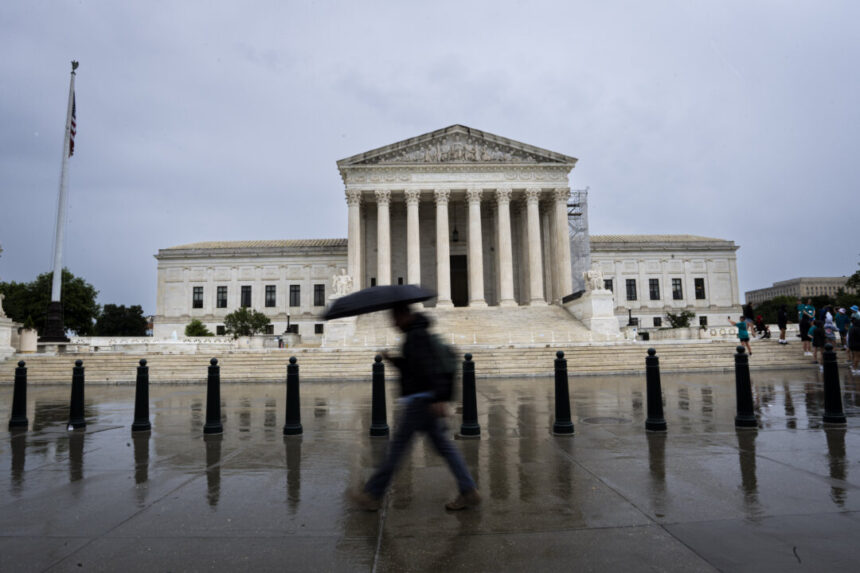The U.S. Department of Justice (DOJ) recently labeled the century-old Insular Cases as “racist,” a series of Supreme Court decisions that impact U.S. overseas territories. Critics have long criticized these rulings for preventing territorial inhabitants from being treated as full U.S. citizens, with some now denouncing them as examples of systemic racism.
The Insular Cases originated in the early 1900s and revolved around the status of territories acquired by the United States following the Spanish-American War of 1898. These territories were administered by the Bureau of Insular Affairs under the Department of War, hence the term “insular.”
The Supreme Court ruled that individuals in unincorporated territories like Puerto Rico were not U.S. citizens and that the U.S. Constitution did not fully apply in those areas. However, in incorporated territories like Alaska and Hawaii, which were moving toward statehood, the Constitution was fully enforced. Alaska and Hawaii eventually became U.S. states in 1959.
Some of the Insular Cases referred to inhabitants of these territories as “alien races” and “savage tribes,” using racist language and logic that the DOJ now condemns. Assistant Attorney General Carlos Felipe Uriarte expressed the DOJ’s disapproval of the racist rhetoric and reasoning in these cases and emphasized the agency’s commitment to applying constitutional interpretation without relying on such outdated and discriminatory views.
The Justice Department’s stance aligns with a similar sentiment expressed by Justice Neil Gorsuch in the recent U.S. v. Vaello Madero case, where he criticized the foundationless and racially biased nature of the Insular Cases. Congressman Raul Grijalva lauded the DOJ’s rejection of the racist doctrine upheld by these cases, viewing it as a crucial step towards rectifying the historical denial of equal rights and self-determination to communities of color in U.S. territories.
The Supreme Court’s refusal to hear a case challenging the Insular Cases further solidified their standing, with American Samoans in Utah contending that these rulings deprived them of full U.S. citizenship. Despite the denial of their petition, the Biden administration supported the existing laws regarding American Samoans’ status, emphasizing that it was Congress, not the Supreme Court, that determined their citizenship classification.
Guarantees of “certain fundamental personal rights” apply in unincorporated territories but other constitutional guarantees do not apply there “at least if ‘judicial enforcement of the provision[s] would be ‘impracticable and anomalous.’
But the government “in no way relies on the indefensible and discredited aspects of the Insular Cases’ reasoning and rhetoric[,]” Ms. Prelogar wrote.






